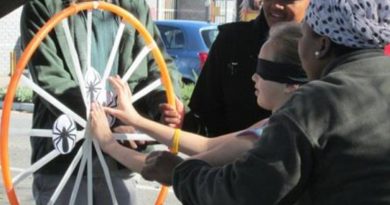Bullying: Advice for Parents
Many parents have been asking for advice on how to help their child who is being bullied. This article focuses on practical tools you can implement at home. It all begins with keeping constant open lines of communication between you and your child.
If you suspect that your child is being bullied, avoid direct questioning. Rather than asking “are you being bullied?” try giving your child a scenario during play time or while reading them a story and use this to open a discussion about bullying. Ask them scenario questions such as:
- “How do you think that person feels being spoken to like that?”
- “Why do you think that child is being so mean?”
- “What would you do in that situation?”
You can also use this as an opportunity to teach your child about why people bully others. Remind them that a bully is often going through a difficult time of their own and they don’t know how to cope with it.
If you have a very young child who you suspect is involved in bullying, chances are they aren’t yet able to verbally express themselves. This can result in ‘acting out’ behaviour. Children are taught mad, sad, bad, and glad. But are they feeling rejected, angry, embarrassed, isolated, lonely, or ashamed? Talk to them, show them pictures, and help them with the vocabulary they need to express themselves properly.
If your child opens up to you about being bullied, try your best to stay calm. Put your anger aside and listen to what your child is telling you. They are looking at how you react in uncomfortable situations. Use this as an opportunity to model calm and effective communication skills. Thank your child for being brave.
Don’t go running to the school to scream at someone. Many children do not open up about bullying because they dread this reaction. Ask your child how they have dealt with the bullying until now, and ask them what they would like to do moving forward. This helps them feel included and in power of the decision-making process.
Reassure your child that it is not their fault. Children often feel that they have somehow brought the bullying upon themselves. Explain to them that this is not the case. Remind them that many celebrities have been bullied too and look together for some examples.
Encourage your child to join a new sport or club such as drama or self-defence class. This helps to build confidence and offers a chance to make new friends.
Role-play bullying scenarios and practice your child’s response. Help them to express confidence through body language, tone of voice and verbal responses. Don’t encourage verbal or physical aggression.
Sometimes it helps for the child to talk to the bully alone. They can say something like, “I don’t think you are angry with me, I think you are angry about something else and you are taking it out on me. You can talk to me about that if you would like to.”
Lastly, take care of yourself. Don’t try to deal with it alone. Talk to friends, a counsellor, or a support group. There is help out there, you just need to ask for it.
Natasha Potter
Registered Counsellor / Educator / Facilitator





